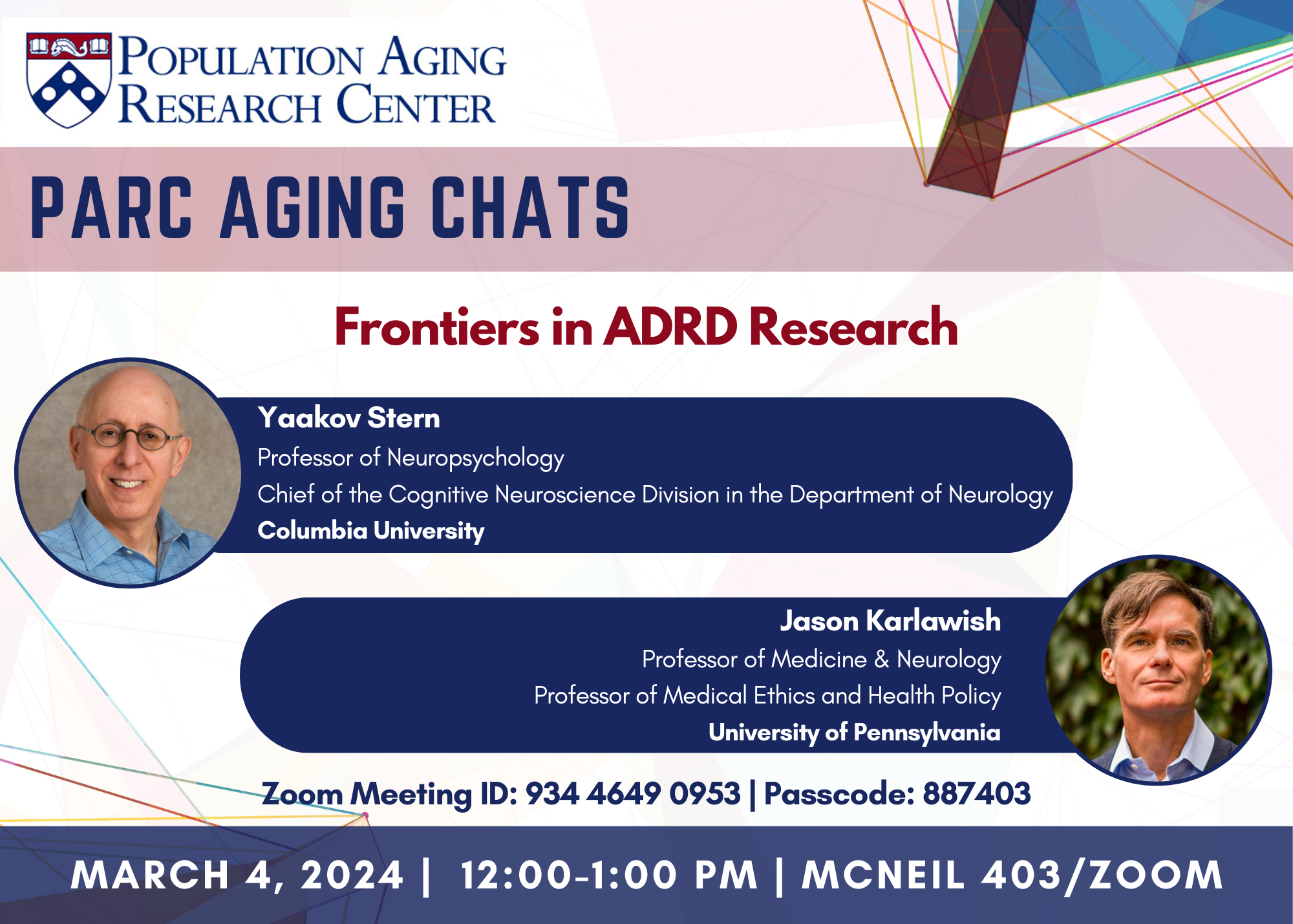Event
Yaakov Stern is the Florence Irving Professor of Neuropsychology in the Departments of Neurology, Psychiatry, and Psychology, and the Taub Institute for the Research on Alzheimer’s Disease and the Aging Brain. Dr. Stern is chief of the Cognitive Neuroscience Division in the Department of Neurology. Dr. Stern received his BA in Psychology from Touro College in 1975. He received his doctoral training in the Experimental Cognition Program at City University of New York, where he received his PhD in 1983. Dr. Stern began his association with Columbia University Medical Center in 1979, when he began working on his dissertation research on cognition in Parkinson's disease. After receiving his PhD, he was appointed postdoctoral research scientist in 1983, and eventually Professor in 1996. Dr. Stern’s research focuses on cognition in normal aging and in diseases of aging, particularly Alzheimer’s disease. A strong theme in his research is exploring individual differences in task performance in general and, more specifically, the reason why some individuals show more cognitive deficit than others in the face of brain insult. This has led to the cognitive reserve hypothesis, which provides rationale for intervening to improve cognitive aging. He directs the Reference Ability Neural Network study, a large-scale longitudinal study designed to isolate brain activation and morphological features associated with specific cognitive abilities. He has directed several clinical trials and is currently also involved in several additional, ongoing studies of cognition in normal aging, studies of the heterogeneity of Alzheimer’s disease and epidemiologic studies of aging, Alzheimer’s disease incidence and progression His research approach includes classic neuropsychological and cognitive experimental techniques with a strong focus on functional imaging. He has published over 600 peer-reviewed papers, numerous chapters, and edited a book on cognitive reserve. Dr. Stern has supervised numerous postdoctoral fellows, many now in faculty positions, and has mentored numerous training awards. He served as associate editor of the Journal of the International Neuropsychological Society, on the editorial board of several journals Neuropsychology and Aging Neuropsychology and Cognition and on the Medical and Scientific Advisory Council, Alzheimer’s Association.
Jason Karlawish, MD is a Professor of Medicine at the Perelman School of Medicine. He is a physician and writer. He cares for patients at the Penn Memory Center, which he co-directs, and studies and writes about issues at the intersections of bioethics, aging, and the neurosciences. His essays have appeared in Forbes, KevinMD, The New York Times, Philadelphia Inquirer, STAT, and The Washington Post. Dr. Karlawish has investigated the development of Alzheimer’s Disease treatments and diagnostics, biomarker-based concepts of disease, informed consent, quality of life, research and treatment decision making, and voting by people with cognitive impairment and residents of long-term care facilities. In a widely read essay in the Journal of the American Medical Association, he introduced the concept of “desktop medicine,” a theory of medicine that recognizes how risk and its numerical representations are transforming medicine, medical care, and health. His essays on the concept of “whealthcare” have raised national awareness about the tight linkages between cognitive health and financial wealth. He has been an internationally recognized proponent of mobile polling, a method of bringing the vote to long-term care facilities that minimizes fraud and maximizes voter rights.
